"Rabbi Heskel Shpilman is a deformed mountain, a giant ruined dessert, a cartoon house with the windows shut and the sink left running."

I 've been carrying Chabon's new novel around on my travels in the hope of reading it a second time, but I'm being overtaken by myself going the other way, so I'll say something now. My copy doesn't have the attractive cover design at left. I wonder; why is that? I mean, what theory is at work that decides Australia, or wherever else, needs the one with the careening 1940s car? It strikes me as misleading. Chabon says he started to get the idea for the book while reading Raymond Chandler (interview), but we shouldn't forget that they belong to quite different eras of writing. Chandler is one of those writers that more people have something to say about than have ever read him. Mickey Spillane on the surface may be seen to be mining the same genre milieu, that of the heroic private detective, but he too, in his early 1950s post-war conservative mindset was a million miles from Chandler, as noted in this insightful piece by Will Cohu in the Uk's daily Telegraph:
His (Spillane's) books were strip-cartoons, written in brutal prose, with an insistent reactionary heartbeat, the thump-thump of the first person singular and the fist as Hammer smashed another face to a bloody pulp. Chandler aimed for the elite; Spillane for the mob. His books were descendants of the "penny dreadfuls" - mass produced, widely distributed and cheap. Their artwork was almost pornographic (I, the Jury showed a picture of Mike Hammer pointing a gun at a semi-clad woman). He flaunted his lack of literary credentials, calling himself a "writer" and taunting the "authors". He developed an anti-aesthetic.
Chabon's detective story has the literary air of Chandler, with the shiny polished lines: "He wasn't a handsome kid. He had a second chin and the hint of a third, without the benefit of a first." but Chabon's milieu is our own feminized world in which the cop's ex-wife is his superior officer, and in which the details of his partner's kids' 'polar bear jammies' are noted. I don't remember the presence of any kids in any of Chandler's novels, though I'm sure I could be mistaken.
But then it is not exactly 'our own' world, though we might say that in our world an author doesn't need to take time out to explain the concept of 'alternative history.' It wasn't exactly unknown in Chandler's years, given some currency by JC Squire's 1931 anthology If it had Happened Otherwise, containing among other 'what ifs', If the Dutch had Kept Nieuw Amsterdam by Hendrik Willem Van Loon, but five or six decades of science fiction broadcast into our living rooms have made it a commonplace. However, as occasionally happens with a book you have no intention of not reading, I sat down to The Yiddish Policemen's Union without having read or heard a single word about its unusual and imaginary setting. For a while I was mystified and kept on my theoretical toes wondering when and where the hell this was taking place, because the author hasn't posted any signs to tell us. He mostly leaves us to figure it out, though by the time things get complicated he had me looking extratextually for a specific answer. Chabon's theoretical Yiddish community is thoroughly worked out in its hierarchies and underworld with its slang, where a gun is a 'sholom' (peace) and a mobile phone is a 'shoyfer' (ritual ram's horn). I love this book. Y'know, I really should just cancel a week of stuff and read it again.
*************
At some point in the draft of the above I was speculating on Chabon's difficulties in following up on his Pulitzer winning Kavalier and Klay when my thoughts turned to another great writer who ran into follow-up trouble, Ralph Ellison. (and I love this title...)
The Invisible Manuscript- Washington Post-Sunday, Aug 19-
Ralph Ellison died leaving four decades'worth of scribbled notes, thousands of typed pages and 80 computer disks filled with work on an ambitious second novel. For 14 years, a pair of literary detectives labored to fit the pieces together. Now they're ready to share with the world.
I almost wrote about Ellison's supposed writer's block in my Fate of the Artist but sensed that I was way out of my depth:
It was only after Ellison's death that Fanny Ellison chose Callahan to become literary executor. This was an honor, but it soon became clear it was also a Herculean task. Manuscript pages, computer disks and scribbled notes lay helter-skelter, everywhere in his home. Ellison had not suffered from writer's block, after all. He had writer's fury. He had written and written and written. A gush of words, and chapters and notes about the chapters. There were background notes -- musings on writing and America and fiction -- much of it also beautifully written; notes about plot outlines and more characters, built word by word, then buried under more notes. It was a spouting gusher of artistic creation, fat manuscripts covering other fat manuscripts, almost all related to that second novel.
(via Bob Morales)
Labels: crime, design, new books (1), new books (2), writers
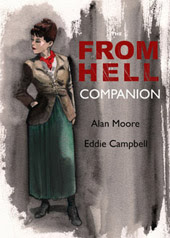
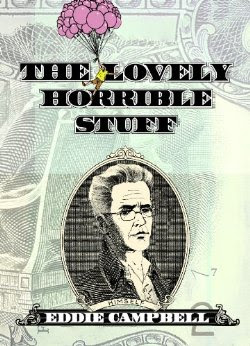

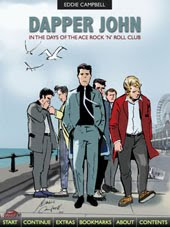
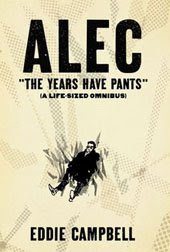
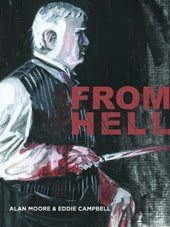
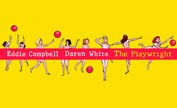
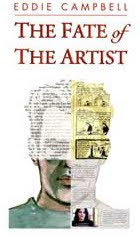
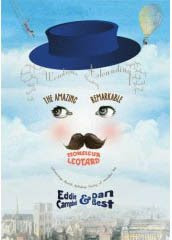
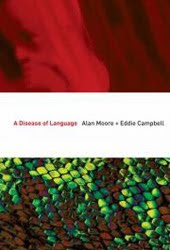
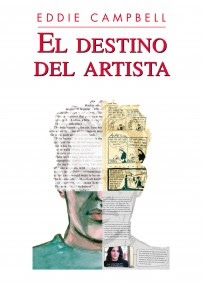
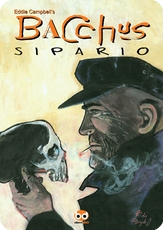
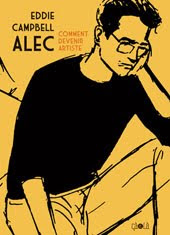

8 Comments:
http://news.bbc.co.uk/1/hi/magazine/6949913.stm
If you wasn't such an amateur you'd have pasted a live link. Bloody Campbells...
;-o
Great cover design. I've not read any of Chabon's books yet but Mike Moorcock keeps speaking highly of him, and with good reason. He's a rare example of a writer happily positioned as "literary" yet with an appreciation and understanding of the genres and seems to be on a bit of a mission about knocking down the walls between different kinds of fiction. One for the future reading list.
Daren: Oi! Live links are so passe. And p.s. I had to demonstrate how to play Dambusters last night to a room of brit comedians when I foolishly mentioned the game in passing, thinking it would be a universally shared experience. It wasn't.
John: Chabon's wonderful. Stick him on the top of the list immediately. I wasn't a fan of The Mysteries of Pittsburgh but that's alright, first novel and all that. Everything else is brill.
Oi H. If you were serious you'd have taken a popper first.
Incidentally, didn't Prof. Tripp in Wonderboys have writer's fury?
live link
Grr!
Iamnotananibal!
Post a Comment
Subscribe to Post Comments [Atom]
<< Home